As coronavirus patients swamped New Orleans hospitals this spring, the number of available ventilators and intensive care beds got critically low at times.
But as health care providers struggled to keep up with the patient crush, doctors at some New Orleans hospitals made decisions about coronavirus patients that were at odds with those made by doctors elsewhere, according to an investigation published Wednesday by the nonprofit newsroom ProPublica.
ProPublica analyzed coroner records of all 460 New Orleans deaths through early May, and found that 55 of them happened outside of a hospital setting. That was unusual: in other cities that were hot spots for coronavirus outbreaks in the spring, patients most often died in hospital-like settings, because health care providers worried that sending them home to die would result in the virus spreading, ProPublica reported.
ProPublica reported that for coronavirus patients 85 and older, 17% died at home in New Orleans, while just 4% died at home nationally.
The practice of sending coronavirus patients home for hospice was especially pervasive at hospitals run by Ochsner Health System, which treated 60% of the region's critically ill COVID-19 patients, ProPublica reported.
Not only were local practices out of step with national ones, they were often out of step with the kind of care relatives wanted for their loved ones. ProPublica's reporters interviewed many of the families of the patients who died at home and found that about two dozen patients first sought care at a hospital before they died. Of that group, 18 were discharged to die at home with hospice care, and relatives of eight of those patients said that Ochsner staff had pressured them into accepting home hospice care against their wishes. All were Black.
In some cases, hospital staffers told the families that they needed to free up the patient’s bed for someone else, ProPublica reported.
After patients were sent home to die in hospice, family members told ProPublica that they weren’t given the proper protective gear to care for them without contracting coronavirus themselves. Some also said they weren't given clear instructions on how to care for their loved ones.
Ochsner officials told The Times-Picayune | The Advocate on Wednesday that sending hospitalized patients home had a positive effect in some cases. Several patients who were sent home for palliative care rebounded and lived, thanks to the presence and support of their friends and family who couldn't be with them inside of the hospital, the officials said.
However, ProPublica found that the decision to send coronavirus patients home to die was unusual, if not unprecedented. Hospitals in other hot spots, including New York City, Seattle and Chicago, told ProPublica that they did not send patients home for hospice care, partially over concerns about exposing more people to the virus.
"We sent nobody — zero — home on hospice to die of COVID,” said Dr. Darrell Owens, a doctor of nursing practice who runs palliative and supportive care at the University of Washington Medical Center-Northwest in Seattle.
In response to questions from ProPublica, Ochsner, the largest health system in Louisiana, denied that the crush of coronavirus patients in their hospitals this spring affected the care its employees provided.
"We do not and did not cut corners on our patient’s care at any time during or after COVID-19,” a spokesperson said.
Dr. Robert Hart, the chief medical officer for Ochsner, told The Times Picayune | The Advocate on Wednesday that he remains proud of how they treated patients since the pandemic began.
ProPublica’s story focused on the case of an 86-year-old woman named Sarah Johnson, who was admitted on April 16 to Ochsner West Bank, and discharged to die at home on hospice a few days later. Her family described in the piece how overwhelming and difficult it was to try to take care of her in her final days at home, without having the right protective gear and proper instruction.
Dr. Brobson Lutz, a former New Orleans health director who is on staff at Ochsner, reviewed Johnson's records for ProPublica and said she did not meet hospice criteria, and that the decision to move her to hospice care likely worsened her outlook.
ProPublica said that its reporters tried to interview relatives of each of the 55 New Orleanians who died at home in the period its story covered. No White families reported feeling pressure to accept hospice care, the article said.
Dr. Michael C. Francis, a community physician on staff at Ochsner, told ProPublica that he has witnessed discrimination when his patients try to navigate complicated decisions about end-of-life care.
“They assume that Black folks don’t know anything,” he told ProPublica. “And that if the doctors do something they don’t agree with, they’re not going to do anything about it.”
Hart, the chief medical officer, told The Times-Picayune on Wednesday that Ochsner staff are keenly aware of the fact that Black patients have been affected by coronavirus at much higher rates than others.
"I'm disappointed at the tenor of the article trying to make it about race," he said.
The article said ProPublica reporters interviewed more than two dozen Ochsner health care workers about their experiences, and many said limited time and resources prevented them from offering their usual level of care.
Nurses at the West Bank hospital told them that there was a stretch of time when every single ventilator was in use, and critically ill patients had to wait for them. Ochsner denied that, saying its hospitals never triaged or rationed ventilators, and that all patients who required one “received that care in a timely fashion.”
Other employees told ProPublica there were cases when physicians gave patients do-not-resuscitate orders without patient and family consent, sometimes even overruling families who wanted everything done to save a life.
Ochsner denied that they issued any so-called DNRs without the consent of a patient or a legally authorized representative.
"Given these challenging and unusual times, it comes as no surprise that a member of the care team, including nursing, had a different perception of those end-of-life conversations, especially where they were not involved in all of the discussions and interactions,” a spokesperson told ProPublica.
"filled" - Google News
September 03, 2020 at 01:10AM
https://ift.tt/31SdPYn
Report: As hospitals filled, New Orleanians with coronavirus were more likely to be sent home to die - NOLA.com
"filled" - Google News
https://ift.tt/2ynNS75
https://ift.tt/3feNbO7
Bagikan Berita Ini
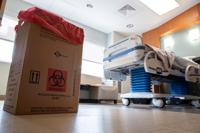
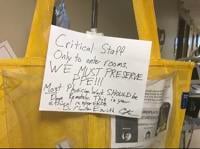
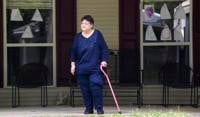
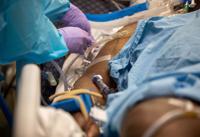

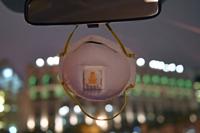














0 Response to "Report: As hospitals filled, New Orleanians with coronavirus were more likely to be sent home to die - NOLA.com"
Post a Comment